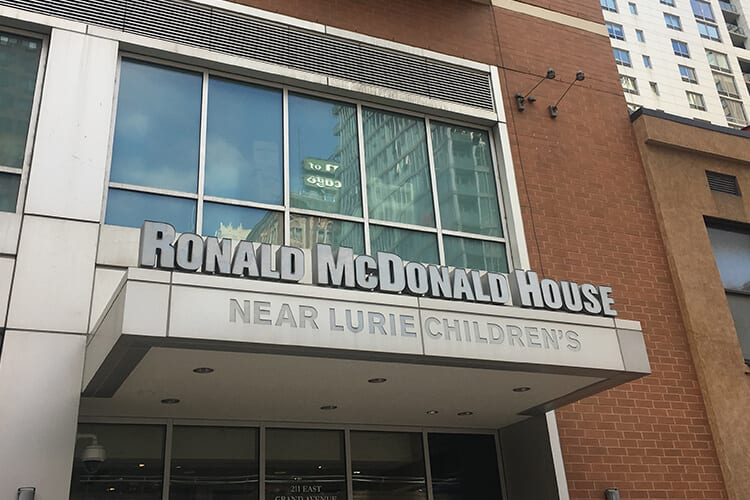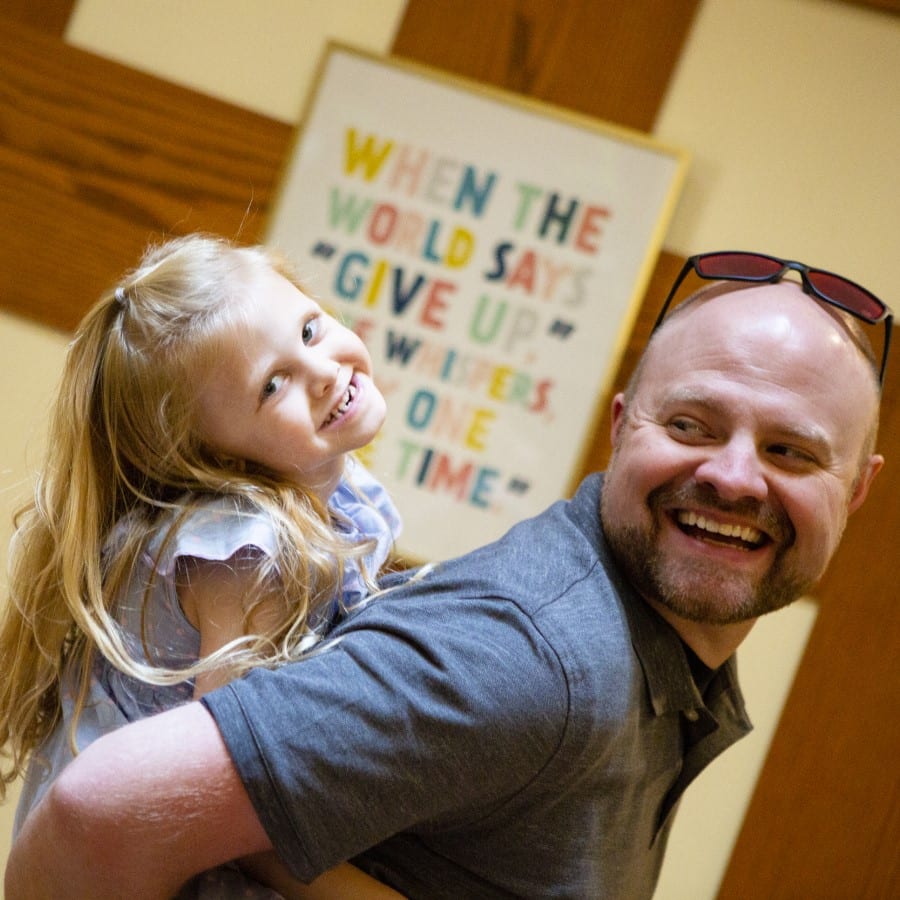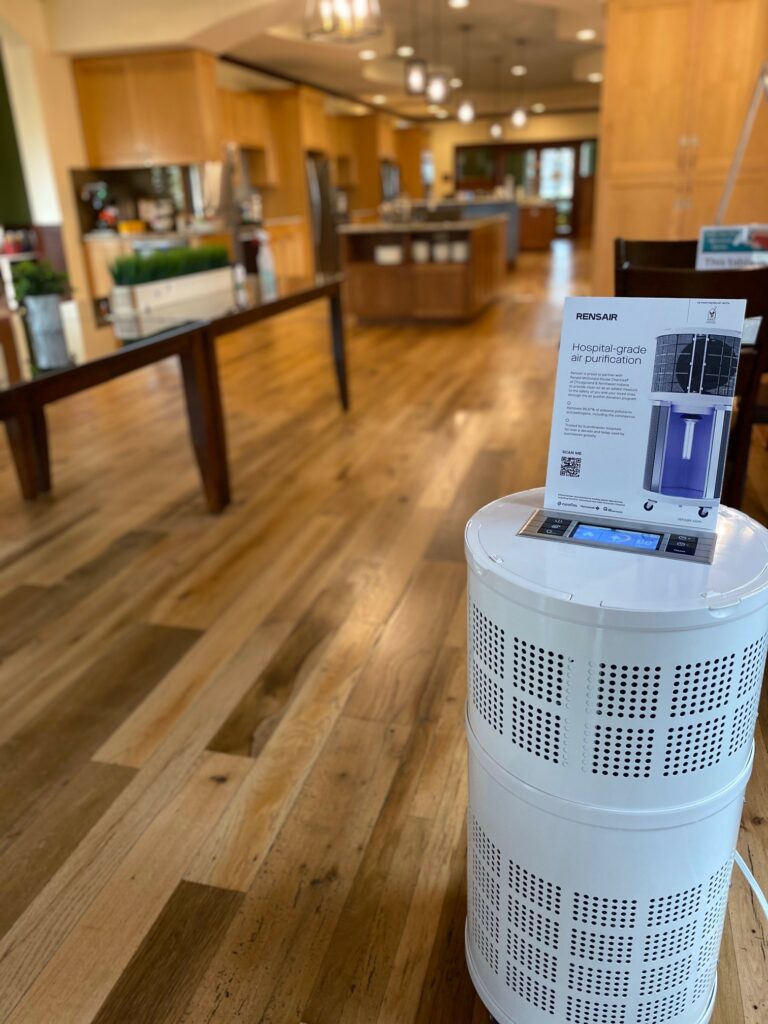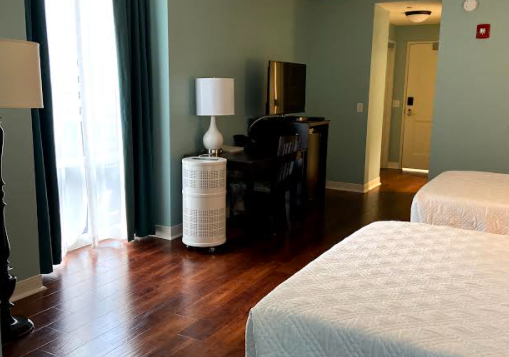Chicagoland charity RMHC benefits from Rensair donation

For families, living through the coronavirus pandemic is tough. For families with critically ill children, it’s even tougher. It’s also tough on those who want to help.
A common goal
When Rensair, a UK-based company that makes portable hospital-grade air purifiers, learned about the challenges Ronald McDonald House Charities ® Chicagoland & Northwest Indiana (RMHC-CNI) had to confront because of the global pandemic they saw an opportunity to provide support.
Originally developed for Scandinavian hospitals, Rensair combines H13 HEPA filters and UV-C light to capture and also destroy bacteria and viruses, including the coronavirus family of pathogens.

The challenge
Holly Buckendahl, CEO of RMHC Chicagoland & Northwest Indiana, shared when the pandemic first hit it was a scramble. “We house families with ill children from every state in the US plus some 12 to 15 countries each year,” she says. The global pandemic meant global-sized challenges for RMHC-CNI. They run five Ronald McDonald Houses, three Ronald McDonald Family Rooms (located inside partner hospitals) and two Ronald McDonald Care Mobiles, mobile medical units providing pediatric care to underserved communities. Pre-pandemic RMH-CNI was housing up to 162 families cost-free every single night.
RMHC-CNI serves families with children needing neonatal/pediatric intensive care, oncology treatments, and organ transplants (heart, liver). “These kids are sick and have a long journey ahead of them,” says Buckendahl. Some families return over five, 10 or 15 years. “We become a family.”
It’s no surprise that many children are immunocompromised. So RMHC-CNI is vigilant in keeping their spaces clean and sanitized, but coronavirus required a significant change in protocols.

Big changes
RMHC-CNI was quick to adopt RMHC Global standards and the required PPE for staff and visitors. They enhanced surface sanitation efforts and implemented social distancing. They kept their Ronald McDonald Houses open, but closed two Family Rooms. In line with hospital protocol, RMHC-CNI restricted accommodation to just one parent and the patient. Room turnover was a big issue. Once a family vacated, they left the room idle for 48 hours. Then a cleaning crew could sanitize it for the next guests. Due to pandemic restrictions, occupancy plummeted from 96% to 35%.
“It was awful to remove the community and emotional support that comes from shared residential living,” says Lisa Mitchell, Vice President of Programs and Services at RMHC-CNI. “Life became very isolated.” They had to shutter playrooms, and common spaces were off limits. Pre-pandemic, their largest Ronald McDonald House with 70-bedrooms prepared and served daily meals for up to 120 people. That had to change. Families could not visit the kitchen. Take-out meals were delivered to the House, and families ate their meals in their rooms.
They also suspended volunteer services. “We rely on 200 to 300 volunteers each month,” explains Buckendahl. “During the pandemic year, we lost about one million dollars in volunteer support. There were no volunteers to greet families, check them in, make meals, clean the kitchen, serve cookies, or help with birthday parties. The staff stepped up to ensure all essential tasks were done, but it was tough on the team,” says Buckendahl.
Bigger questions
Once science confirmed coronavirus spreads through airborne particles, Mitchell took a serious look at the HVAC (heating, ventilation, and air conditioning) system, which was different in each house. “I consulted our HVAC contractor to consider some options for installing blue light technology, but it didn’t seem like a worthwhile investment,” she says. “It was very expensive, there was no substantiated data at that time demonstrating the system killed the coronavirus, plus it was going to need ongoing maintenance with cost implications.” Mitchell looked at additional options and began exploring other air filtration strategies.
The outcome
Rensair donated 16 air purifiers to RMHC-CNI, which were put to immediate use. “For me, the portability factor of Rensair is important,” says Mitchell. Placing Rensair to work in a vacated newly unoccupied room reduced turnover time. They can now serve more families and after room filtration, the units can be moved to the common areas.

The independent laboratory testing and the fact that hospitals use, rely on and endorse Rensair also impressed Mitchell.
Buckendahl says, “Rensair’s sleek and compact design is attractive, easy to move and operate, and the maintenance is simple,” she says. “We are always striving to provide the healthiest environment for our guest families. We continue taking all measures to contribute to better air quality, following guidance from RMHC Global, our partner hospitals and other medical authorities, such as the Centers for Disease Control.
Across the organization, occupancy is now about 55 to 60%. As they go into the summer, Mitchell expects to see occupancy closer to 75%. Ronald McDonald House is born of community and the support of many. “For us to have Rensair come forward to support our families is very inspiring and we are grateful for the investment they have made in Ronald McDonald House Charities Chicagoland & Northwest Indiana,” said Mitchell.
Find out more about Rensair.

